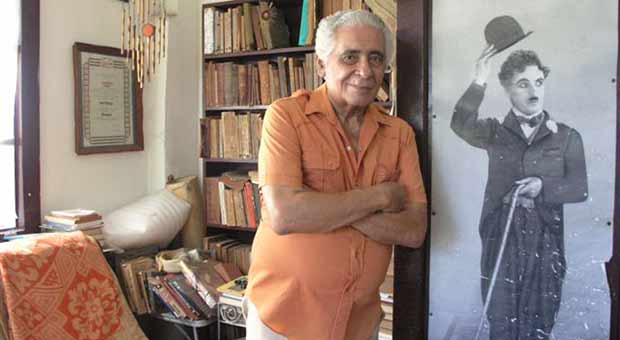José Massip , renowned Cuban filmmaker died on Saturday in Havana. In 2012 he received the National Film Award, a year earlier, the director Mayra Alvarez premiered the documentary Los mundos de Massip.
With a strong academic background as a philosopher, philologist and sociologist, he belonged to the Nuestro Tiempo Cultural society, along with Alfredo Guevara, Tomás Gutiérrez Alea and Julio García Espinosa, with whom he produced the documentary “El Mégano.” “I was the editor of the magazine we had, but our society was much more than a magazine,” according to what he declared to this reporter a few years ago: “In Nuestro Tiempo began our artistic and revolutionary work, the seed of what later we each of us became.”
A little later he would found alongside his friends ICAIC , on March 24, 1959 , which he also qualified in the conversation “as a great cultural achievement from its inception until today, the challenge always supposed to make a different film , called revolutionary film, then New Cuban Cinema , a small Caribbean island with certain ethical , aesthetic and political values above all . “
The pages of the diary of José Martí was one of the great works of this artist, whom he loved deeply, “Martí for me it was a real vocation, I approcahed his greatness first from the movies and never have I failed to investigate his legacy I appreciated deeply before really knowing him and the more I learned the more I admired him.”
He was the first president of the Association of Film Radio and Television of UNEAC. On this post he held for several years, he said. “It was a great responsibility to be in front of that section, it was the most controversial of the time, not so much for the film, but on TV and radio. Initially they allowed belonging to UNEAC only writers, composers, painters, musicians and even filmmakers, no TV and radio artists which were solved in the second Congress. Imagine how difficult it was. “
Jose Massip was 88 when he died, a man who took the pulse of history, just as he drew the features of epic to highlight the inner universe of the men who led our independence struggles.
Very humble, as his Marti paradigm, it was hard for Massip to talk about himself, only said that poetry was what led him to all his creation.
Massip spent more than two decades without filming. At that time I asked him if he missed his time as filmmaker. He replied that he understood art as one and others were his passions in those moments: his teaching in the Department of Aesthetics at the ISA and his research on the life and work of the apostle. He devoted his life to Cuban culture and youth training. He always advised us “to dream much to feed our imagination, which is what most distinguishes humans from the stones.”
I know he would have liked another chance behind the camera. We still have his work to admire him forever.










